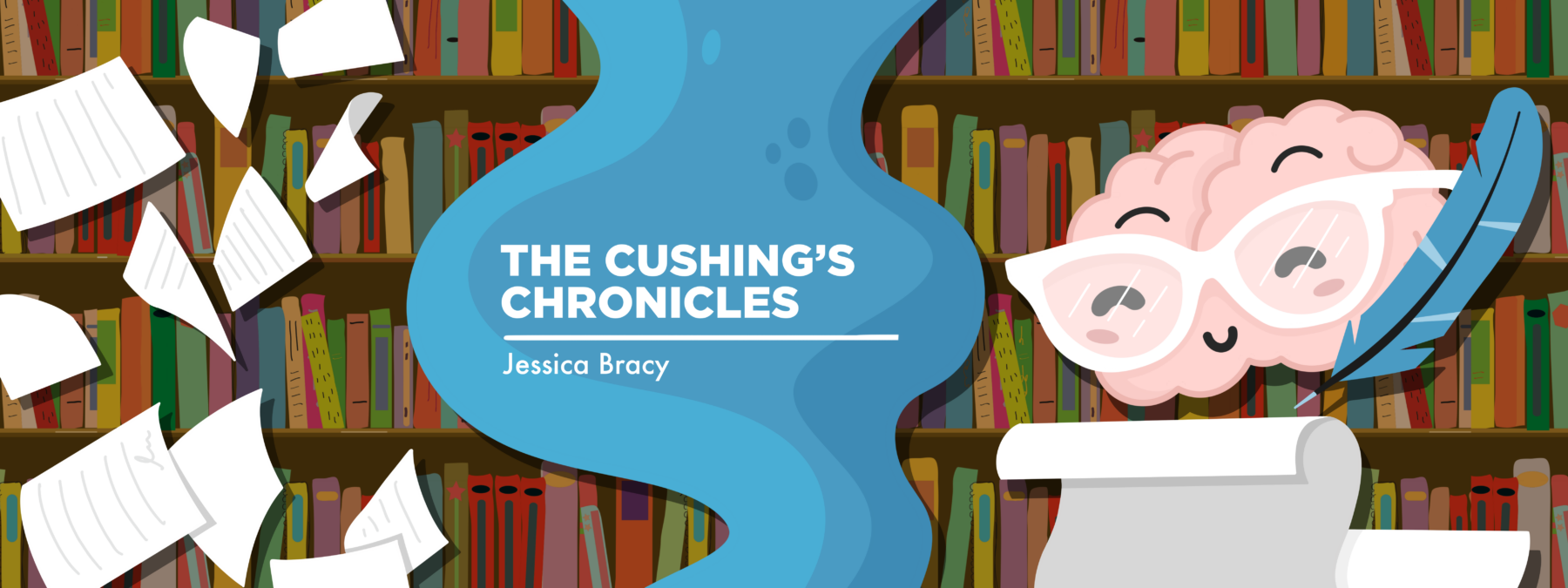An open letter to those recently diagnosed with Cushing’s disease
If things seem scary, this insight from someone who's been there might help
Written by |

Hello! I hope this column finds you doing well. My name is Jessica, and I was diagnosed with Cushing’s disease at the age of 30. A year after that, I had transsphenoidal pituitary resection surgery to remove a 3 mm pituitary tumor.
Having Cushing’s disease is not only inconvenient — which is a huge understatement — but it is also incredibly challenging to be diagnosed and properly treated. Because of this, I’d like to share some of the knowledge and information I picked up along the way. This journey may be long, but I encourage you to keep going. Your health is worth it.
Seeking support
First and foremost, I believe it’s important to find support, which can be done in myriad ways. Talking with friends or family members about what you are going through can be extremely helpful.
Support groups online or via social media can also be beneficial, and there are plenty of them out there. The support groups I encountered were welcoming and nonjudgmental, and I ended up making lifelong friends.
Another form of support I utilized was psychotherapy. I found processing my experiences to be invaluable.
Finding the right doctor
When you have a rare disease, it is crucial to find a doctor who understands and has experience with the disease. I encountered many doctors who knew little about Cushing’s disease. This can result in medical gaslighting. I found it really helpful to document my symptoms. Doing this helped doctors have a more accurate picture of what I was going through.
Repeating a mantra
One thing I continuously repeated to myself throughout my Cushing’s journey was, “You know your body better than anyone else.” This became a daily mantra that I also said whenever a doctor questioned my diagnosis. Trusting myself and believing that the symptoms were actually happening prompted me to advocate for testing and treatment.
Taking time for yourself
The last thing I found most helpful was taking time for myself. I learned to listen to my body and give it what it needed most. If I felt tired, I took a nap. If I was feeling sick, I canceled plans. I worked on being kinder to my body as it morphed as a result of this disease. I also gave myself space to grieve the body I no longer had.
This Cushing’s journey has been one of the most challenging things I’ve had to face. It was unbelievably scary at times, but I made it — and you can, too. You’ve got this, and I believe in you. I truly hope that you find answers and solutions to what ails you.
Note: Cushing’s Disease News is strictly a news and information website about the disease. It does not provide medical advice, diagnosis, or treatment. This content is not intended to be a substitute for professional medical advice, diagnosis, or treatment. Always seek the advice of your physician or other qualified health provider with any questions you may have regarding a medical condition. Never disregard professional medical advice or delay in seeking it because of something you have read on this website. The opinions expressed in this column are not those of Cushing’s Disease News or its parent company, Bionews, and are intended to spark discussion about issues pertaining to Cushing’s.







Maria Ventura
Hello Jessica :)
Thank you for your words.
Can you indicate me some support groups, please?
Jessica Bracy
Hi Maria! Absolutely! There are quite a few on facebook! I believe one is called the many faces of cushings. Another one that I found helpful was called, cushings disease/syndrome support group… i hope this helps! There are so many out there. Id encourage you to join a few and see what is most helpful for you!